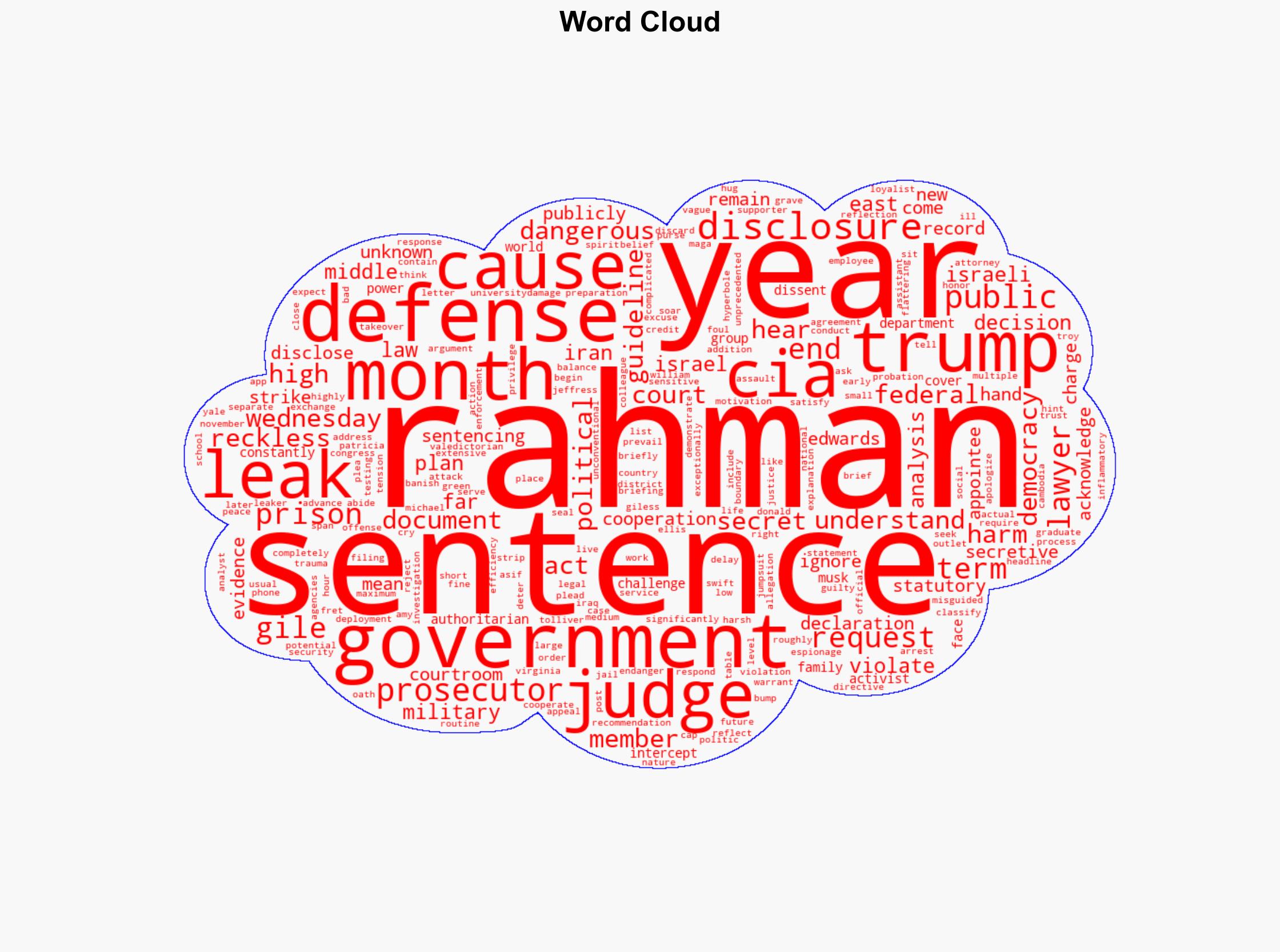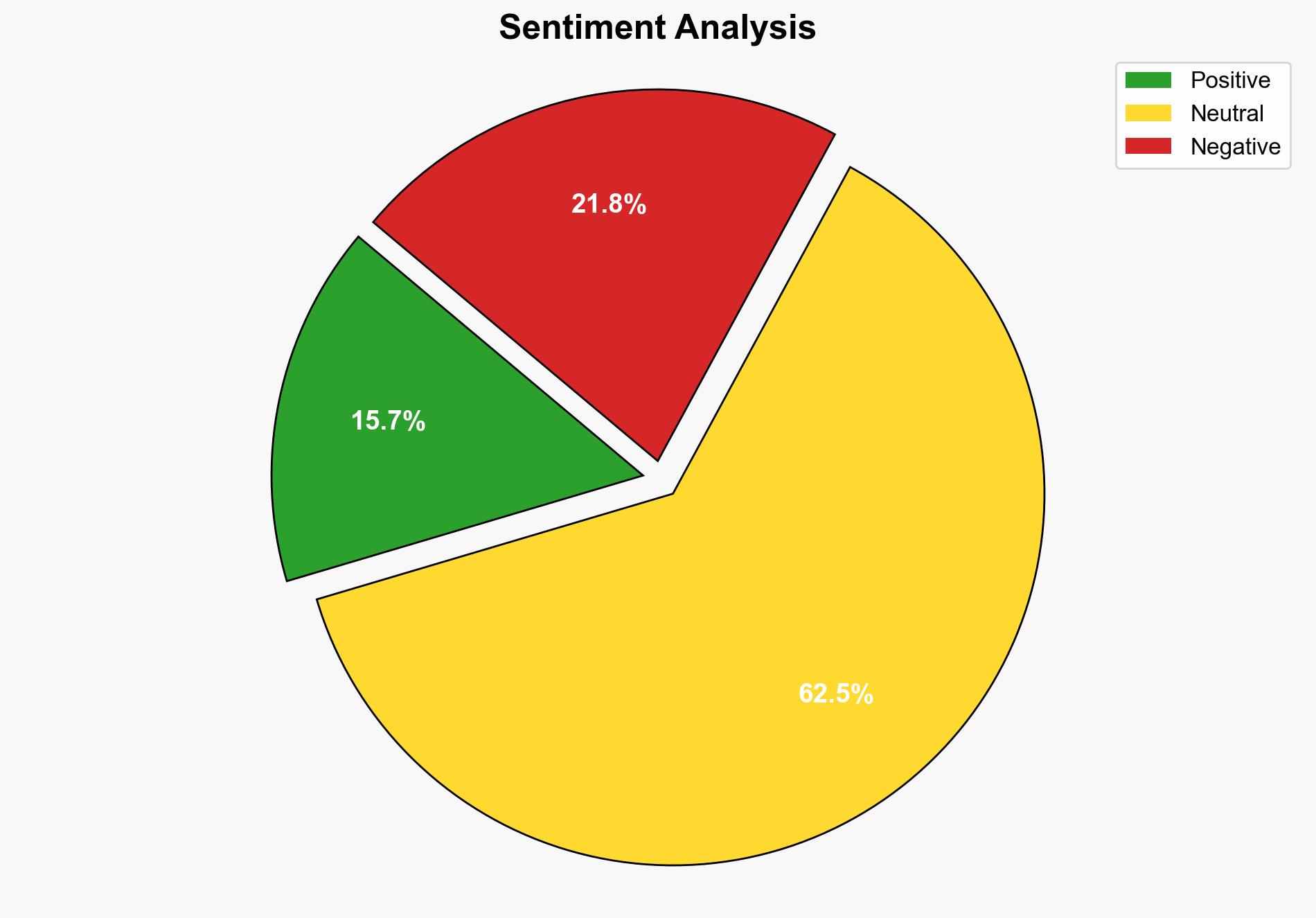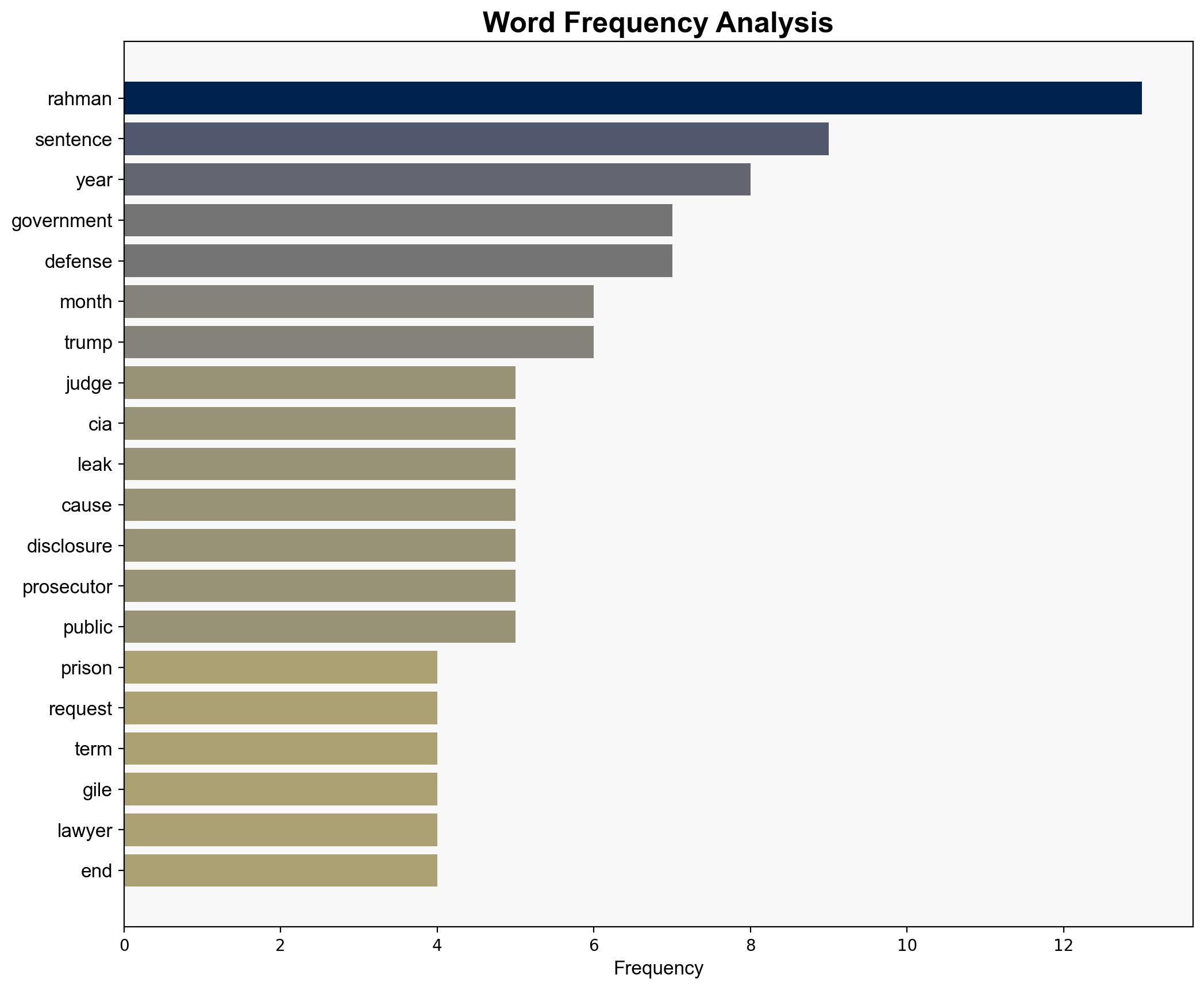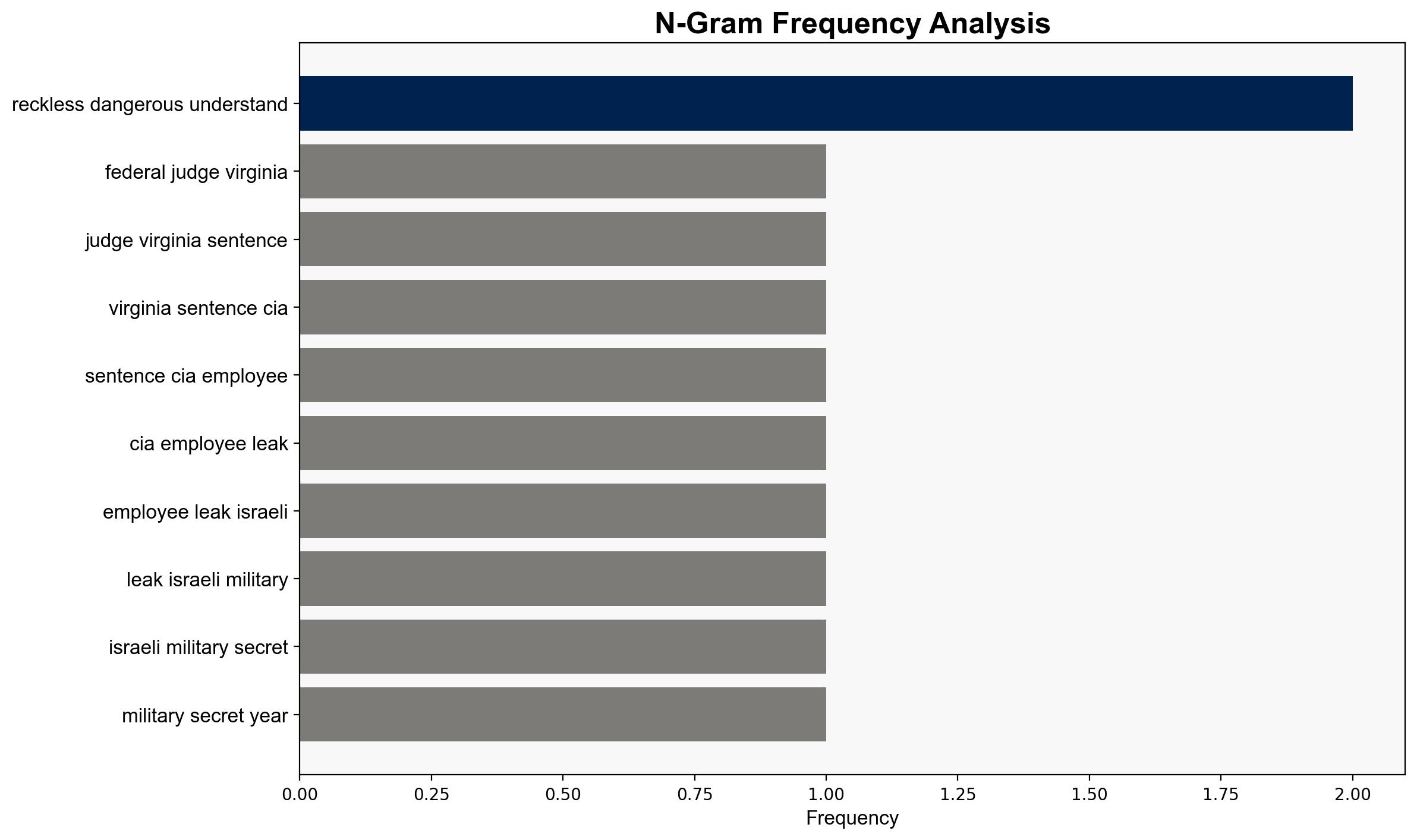Trump Appointee Wanted to Lock Up CIA Leaker for a Decade The Judge Ignored Him – The Intercept
Published on: 2025-06-11
Intelligence Report: Trump Appointee Wanted to Lock Up CIA Leaker for a Decade The Judge Ignored Him – The Intercept
1. BLUF (Bottom Line Up Front)
The sentencing of Asif William Rahman, a former CIA employee, highlights a significant judicial decision that diverged from the government’s request for a harsh penalty. The case underscores tensions between national security imperatives and judicial discretion. The judge’s decision to impose a lighter sentence than recommended reflects a nuanced consideration of the potential harm caused by the leaks and the defendant’s cooperation. This case may set a precedent for future espionage-related prosecutions and influence how plea agreements are negotiated.
2. Detailed Analysis
The following structured analytic techniques have been applied to ensure methodological consistency:
Causal Layered Analysis (CLA)
The surface event involves the sentencing of Rahman for leaking sensitive information. Systemic structures include the legal frameworks governing espionage and plea agreements. The worldview reflects a balance between national security and judicial fairness. The myth involves the perception of whistleblowers as either traitors or heroes.
Cross-Impact Simulation
The decision may influence future legal proceedings involving leaks, potentially affecting international relations, especially with countries involved in the disclosed information. It could also impact internal CIA policies regarding information security and employee oversight.
Scenario Generation
– Best Case: Judicial discretion in espionage cases leads to more balanced sentencing, improving public trust in the legal system.
– Worst Case: The lighter sentence is perceived as leniency, encouraging further leaks and undermining national security.
– Most Likely: The case prompts a review of plea agreements and sentencing guidelines in espionage cases, leading to more standardized practices.
3. Implications and Strategic Risks
The case presents potential risks to national security if perceived as setting a precedent for leniency in espionage cases. It may also affect the morale and operational security within intelligence agencies. Additionally, the public disclosure of sensitive information could strain diplomatic relations and impact regional stability.
4. Recommendations and Outlook
- Review and potentially revise sentencing guidelines for espionage cases to ensure they align with national security priorities.
- Enhance internal security measures within intelligence agencies to prevent future leaks.
- Monitor the impact of this case on international relations, particularly with countries implicated in the leaked information.
5. Key Individuals and Entities
– Asif William Rahman
– Patricia Tolliver Giles
– Troy Edwards
– Michael Ellis
– Amy Jeffress
6. Thematic Tags
national security threats, cybersecurity, counter-terrorism, regional focus




